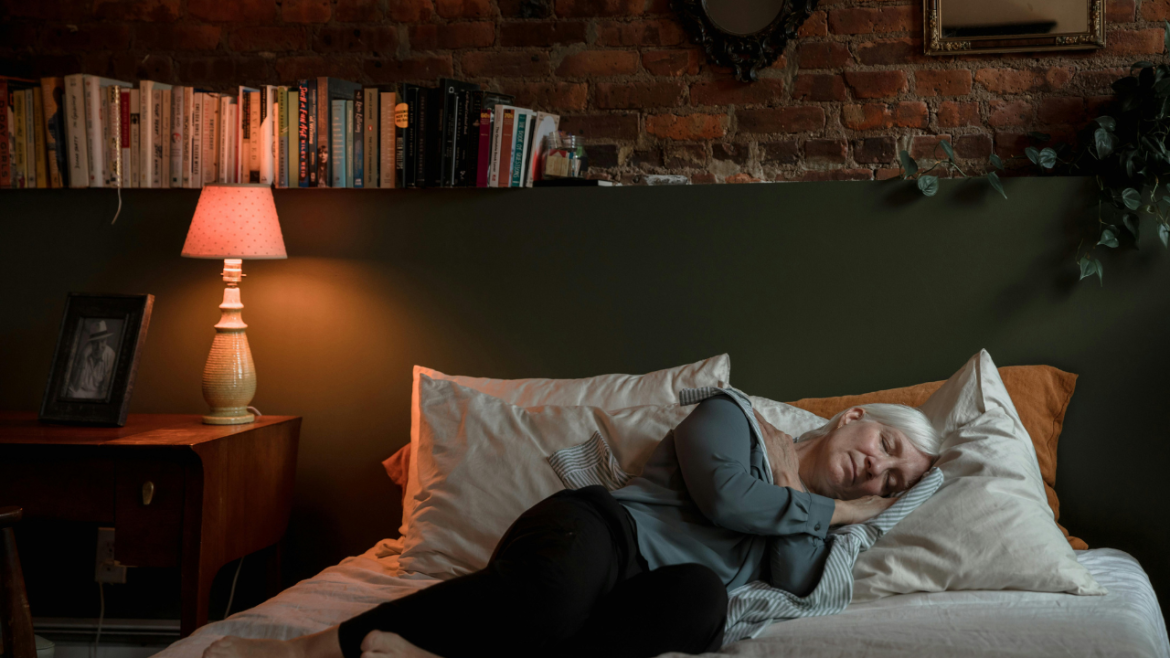Tips For A Senior To Sleep Better
As people age, sleep often becomes more elusive. Nights that were once peaceful can turn into hours of restlessness, frequent waking, or early rising. For seniors, sleep is not just a luxury but a vital component of overall health. It supports memory, strengthens the immune system, and promotes emotional balance.
Yet, many older adults find themselves lying awake, their minds racing while their bodies long for rest. Understanding how to improve sleep starts with compassion and awareness—because quality rest for seniors is both a physical and emotional need.
Understanding Why Sleep Changes With Age
Sleep naturally changes as the body ages. The brain produces less melatonin, the hormone that regulates sleep, and this can lead to lighter, shorter sleep cycles. Medical conditions, pain, or medications may also disrupt rest. Seniors might find themselves waking several times during the night, unable to return to deep sleep. However, it is essential to remember that these changes do not mean restful sleep is out of reach. They simply mean that achieving it may require more intentional care and attention.
Recognizing that sleep patterns evolve allows families and caregivers to approach the issue with empathy rather than frustration. When sleeplessness is met with understanding, it opens the door to solutions that are gentle, practical, and deeply supportive.
The Power Of A Peaceful Environment
A restful night begins with the right environment. The bedroom should be a place of calm, comfort, and safety. For many seniors, clutter, light, or noise can become unexpected sources of anxiety that disrupt sleep. Creating a peaceful space means focusing on simplicity and serenity. Soft lighting, clean linens, and a supportive mattress can transform a restless night into one of relaxation.
The temperature of the room also matters greatly. Seniors are more sensitive to heat and cold, and maintaining a consistent temperature can prevent nighttime waking. A quiet, dim space signals to the body that it is time to unwind. Every small adjustment, from a soothing scent to comfortable pillows, contributes to a sense of tranquility that encourages better sleep.
Establishing Gentle Routines
The body thrives on rhythm. For seniors, maintaining consistent sleep and wake times can regulate their internal clock and improve overall sleep quality. Establishing a relaxing bedtime routine sends cues to the brain that it is time to rest. Gentle activities such as reading, listening to calming music, or engaging in quiet reflection can soothe the mind.
Avoiding stimulating activities before bed, such as watching television or using digital devices, can also make a significant difference. The light emitted from screens interferes with melatonin production, keeping the mind alert when it should be winding down. Routines built on consistency, calm, and comfort create an environment where sleep can flourish naturally.
Supporting The Mind And Body
A peaceful mind supports a peaceful night. Seniors who experience worry or sadness may find their thoughts interfering with rest. Emotional health and sleep are deeply intertwined, and addressing one often improves the other. Gentle exercise during the day, like walking or stretching, promotes relaxation at night by releasing built-up energy and tension. Balanced meals, hydration, and avoiding caffeine late in the day also encourage the body to settle more easily at bedtime.
Caregivers can play an important role by listening with patience when seniors express frustration about sleep difficulties. Sometimes, the act of being heard brings comfort strong enough to quiet the mind. Emotional reassurance, combined with consistent care, helps create the stability that supports deeper rest.
Addressing Underlying Health Concerns
Many seniors face medical conditions that interfere with rest, such as arthritis, restless leg syndrome, or sleep apnea. In these cases, addressing underlying issues can lead to significant improvement in sleep quality. Consulting a healthcare provider ensures that pain or breathing issues are properly managed. Even small adjustments—such as changing medications or improving sleeping positions—can make meaningful differences.
It is also important for seniors to understand that seeking help is not a sign of weakness but an act of self-care. When the body is treated with respect and supported medically, sleep becomes a natural response rather than an ongoing struggle.
Finding Comfort In The Night
Sleep is more than a biological need—it is a source of healing and renewal. For seniors, improving sleep means creating a balance between physical comfort and emotional reassurance. It is about softening the edges of worry and replacing them with peace. When the environment feels calm, routines feel familiar, and the body feels cared for, rest comes easier.
Families and caregivers who focus on creating safety, calm, and predictability help transform restless nights into restful ones. Through patience, consistency, and understanding, seniors can rediscover the comfort of true rest. Every peaceful night becomes more than sleep—it becomes restoration, strength, and a quiet reminder that the body and spirit can still find calm in the darkness.

